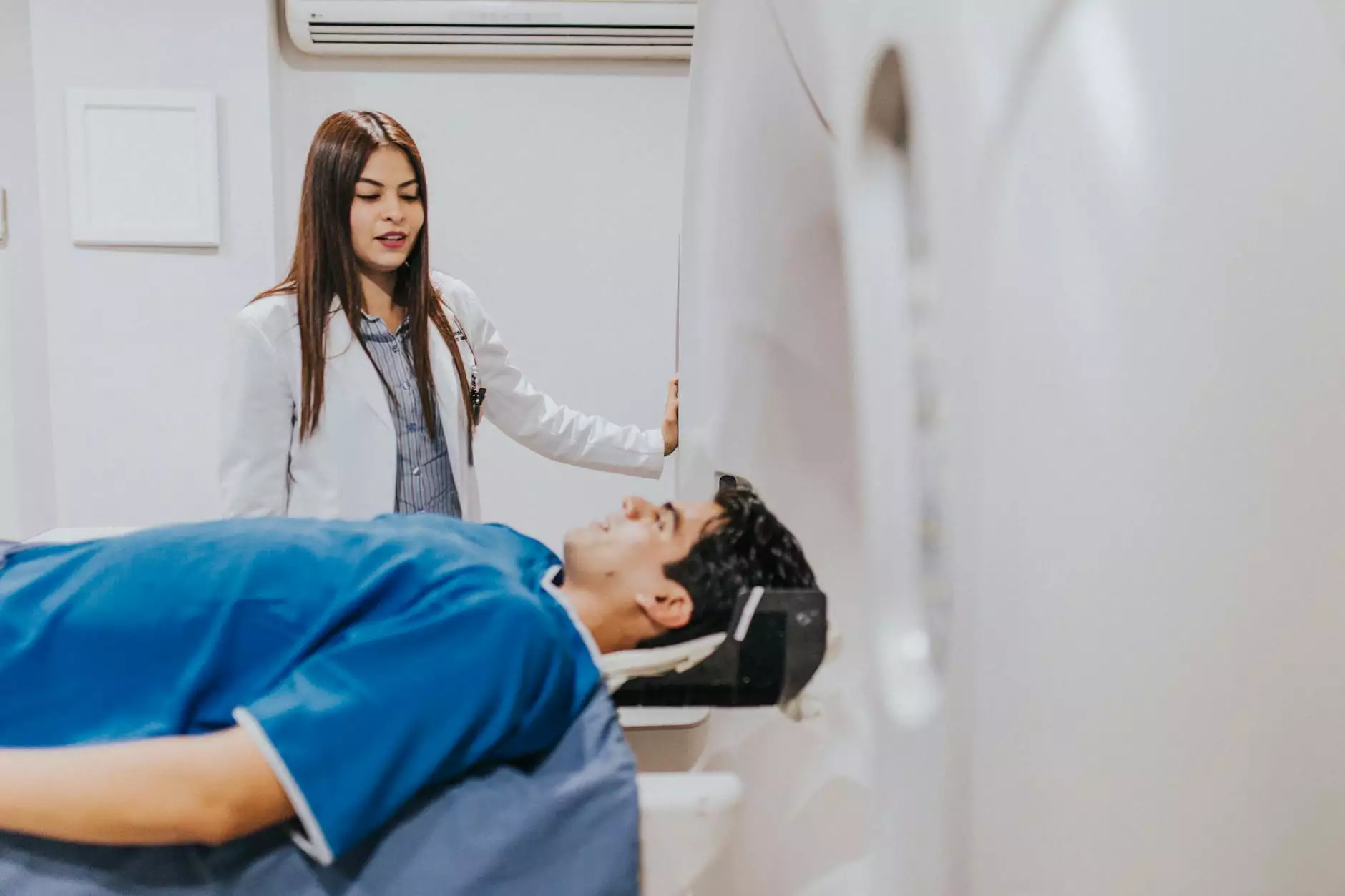Lung Cancer CT Scan: A Comprehensive Guide

Lung cancer remains one of the leading causes of cancer-related mortality worldwide. Effective detection and diagnosis are crucial for improving patient outcomes, and this is where the lung cancer CT scan plays a pivotal role. In this extensive guide, we will delve into the importance of CT scans in diagnosing lung cancer and how they contribute to patient care within the realm of health and medical practices, especially in the context of sports medicine and physical therapy.
Understanding Lung Cancer
Lung cancer primarily manifests in two main types: non-small cell lung cancer (NSCLC) and small cell lung cancer (SCLC). These types differ significantly in their behavior and response to treatment. The early detection of lung cancer significantly enhances the chances of successful treatment. Several methods exist for diagnosing lung cancer, but one of the most effective is the lung cancer CT scan.
What is a CT Scan?
A Computed Tomography (CT) scan creates detailed images of internal organs using X-ray technology. Unlike regular X-rays, which show only a flat image, CT scans provide cross-sectional views of the body, allowing healthcare professionals to see the structure and size of abnormalities.
Why Choose a CT Scan for Lung Cancer Detection?
The lung cancer CT scan is particularly useful for several reasons:
- Early Detection: CT scans can detect lung cancers at an earlier stage compared to traditional methods such as X-rays. This is crucial since early-stage cancers often have better prognoses.
- Detailed Imaging: The detailed cross-sectional images allow for the evaluation of the lungs' internal structures, helping to identify suspicious nodules or lesions.
- Monitoring: Patients with a history of lung cancer or those at high risk can benefit from regular CT scans to monitor for any changes in lung health.
The Process of a Lung Cancer CT Scan
Understanding the process of a lung cancer CT scan can alleviate patient concerns and ensure they are prepared. The procedure typically involves the following steps:
- Preparation: Patients may be instructed to avoid eating or drinking for a few hours before the scan. They should also inform healthcare providers of any allergies, especially to contrast agents.
- Positioning: Patients lie down on an examination table that slides into the CT scanner. The technician will position the patient correctly and may provide instructions on when to hold their breath during the scan.
- Scanning: The CT machine will take several X-ray images as it rotates around the patient. This process is quick, taking only a few minutes.
- Post-Scan: After the scan is completed, patients can typically resume normal activities. The images will be analyzed by a radiologist, who will prepare a report for the physician.
Benefits of Lung Cancer CT Scans
Utilizing lung cancer CT scans in clinical practice provides numerous benefits:
- Accurate Diagnosis: CT scans significantly enhance diagnostic accuracy, making it easier for doctors to distinguish between benign and malignant lesions.
- Treatment Planning: They provide essential information about the size and location of tumors, which is critical for developing effective treatment plans.
- Guidance for Biopsies: In cases where lung cancer is suspected, CT scans help guide biopsies, allowing for precise sampling of tissue.
Risks and Considerations
While lung cancer CT scans are generally safe, there are some risks and considerations to be aware of:
- Radiation Exposure: CT scans involve exposure to radiation, which can contribute to cancer risk over time. However, the benefits often outweigh these risks in high-risk populations.
- False Positives: Sometimes, CT scans may show abnormalities that are not cancerous, leading to unnecessary anxiety and invasive procedures.
- Contrast Reactions: If a contrast agent is used, there is a small risk of an allergic reaction. Patients should communicate any known allergies beforehand.
CT Scans in the Context of Sports Medicine
In the field of sports medicine, CT scans can also be significant. Athletes are often at risk for various types of lung issues due to their physical exertion and environmental exposures. Regular assessments using CT scans can help identify early signs of lung conditions, allowing for timely interventions.
Importance of Monitoring Lung Health in Athletes
For athletes, maintaining optimal lung health is vital. Here are a few reasons why:
- Performance Optimization: Healthy lung function is crucial for endurance and overall physical performance.
- Injury Prevention: Understanding lung function through CT scans can help avoid complications that might interfere with training and competition.
- Long-Term Health: Regular lung assessments can track changes over time, ensuring long-term health and performance sustainability.
The Role of Physical Therapy in Lung Cancer Recovery
Post-diagnosis and treatment, the role of physical therapy becomes paramount for lung cancer patients. Physical therapists can design tailored programs to enhance recovery and promote lung function.
Benefits of Physical Therapy for Lung Cancer Patients
Incorporating physical therapy following a lung cancer CT scan diagnosis offers crucial benefits:
- Breathing Exercises: Therapists can help patients learn techniques to improve their breathing efficiency and lung capacity.
- Strengthening Programs: Targeted exercises can help rebuild strength that may have been lost during treatment.
- Psychosocial Support: Physical therapists often play an essential role in providing emotional and psychological support, which can be vital during recovery.
Conclusion: The Future of Lung Cancer Detection and Treatment
As advancements in technology continue to evolve, the role of lung cancer CT scans is expected to expand. Future innovations may lead to even more precise imaging techniques, improving early detection rates and patient outcomes.
For healthcare providers and patients alike, understanding the significance of the lung cancer CT scan is paramount. Whether in general health, sports medicine, or physical therapy, these scans play a critical role in comprehensive patient care, ultimately striving towards better outcomes and improved quality of life for those affected by lung cancer.
HelloPhysio.sg is dedicated to providing the highest quality of care to support patients through every stage of their health journey. Understanding the importance of early detection and treatment plans can make a world of difference. Together, we can advance our knowledge and strategies in combating lung cancer and promoting overall health and wellness.



